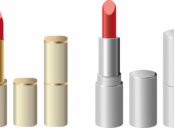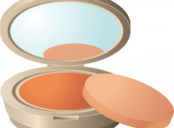Microneedling serum: A Comprehensive Guide for Food Enthusiasts

Introduction:
Microneedling serum has gained immense popularity in recent years for its potential benefits in enhancing skin quality and promoting youthful appearance. In this article, we will provide an in-depth overview of microneedling serum, exploring its types, popularity, quantitative measurements, differences between various products, as well as a historical analysis of its advantages and disadvantages.
Microneedling Serum: What is it and Popular Types:

Microneedling serum refers to a skincare product used in conjunction with microneedling procedures. These procedures involve creating micro-injuries on the skin’s surface using a device with tiny needles. The serum is then applied to the treated area to enhance absorption and deliver beneficial ingredients deeply into the skin.
Several types of microneedling serums exist, each catering to specific skin concerns. Popular varieties include those enriched with hyaluronic acid, vitamin C, retinol, or peptides. Hyaluronic acid-infused serums provide deep hydration, while vitamin C serums target age spots and pigmentation issues. Retinol and peptide-based serums aim to improve collagen production and reduce wrinkles.
Quantitative Measurements of Microneedling Serum:
When evaluating microneedling serums, several quantitative measurements can help determine their efficacy. One such measurement is the serum’s pH level, which should ideally range between 4 and 6 to maintain a healthy skin barrier. Additionally, measuring the concentration of active ingredients, such as hyaluronic acid or vitamin C, can provide insights into the potency and potential benefits of the serum.
Differences between Microneedling Serums:
Microneedling serums differ in terms of their ingredient composition, efficacy, and target skin concerns. While some serums may focus on hydration and plumping effects, others may concentrate on skin brightening or anti-aging benefits. Furthermore, the viscosity and texture of serums may vary, affecting their ease of application and absorption. Understanding these differences can help individuals choose the most suitable serum for their specific needs.
Historical Overview of Pros and Cons of Microneedling Serums:
Microneedling serum has come a long way, with advancements and refinements improving its efficacy and safety. Initially, some concerns were raised regarding infection risks and skin irritation. However, modern microneedling serums have addressed these issues through sterilization processes and the inclusion of soothing, anti-inflammatory ingredients. The pros of using microneedling serums include improved absorption of active ingredients, enhanced collagen production, reduced appearance of scars and wrinkles, as well as overall skin rejuvenation. On the other hand, potential cons include the need for professional microneedling procedures and possible temporary redness or irritation.
Conclusion:
Microneedling serum has emerged as a promising solution for individuals seeking to enhance their skin quality and combat various skin concerns. With a wide array of types available and significant advancements in the field, individuals can now choose suitable serums tailored to their specific needs and preferences. As always, it is essential to consult with skincare professionals and experts before incorporating any new products into your skincare routine.





















